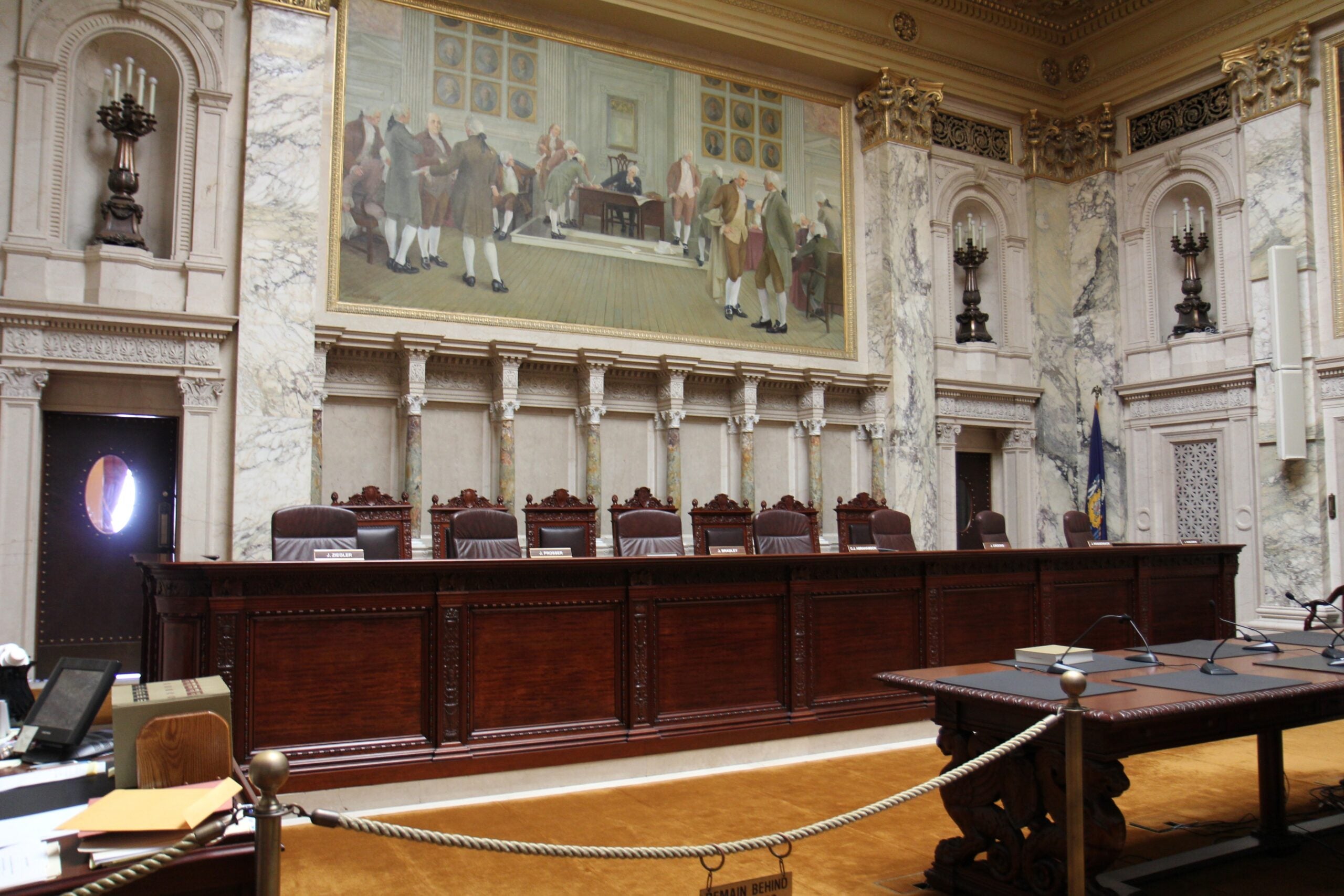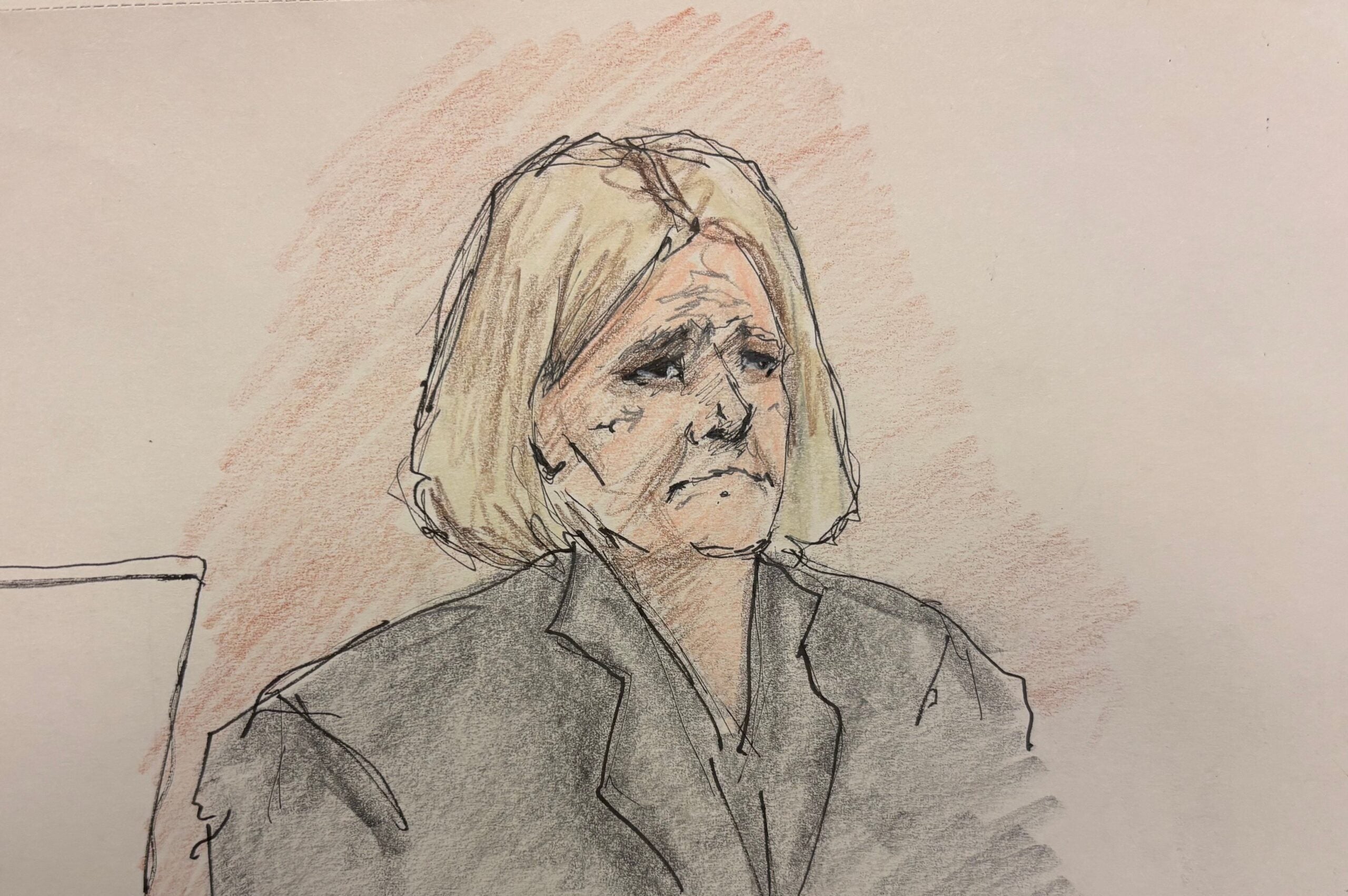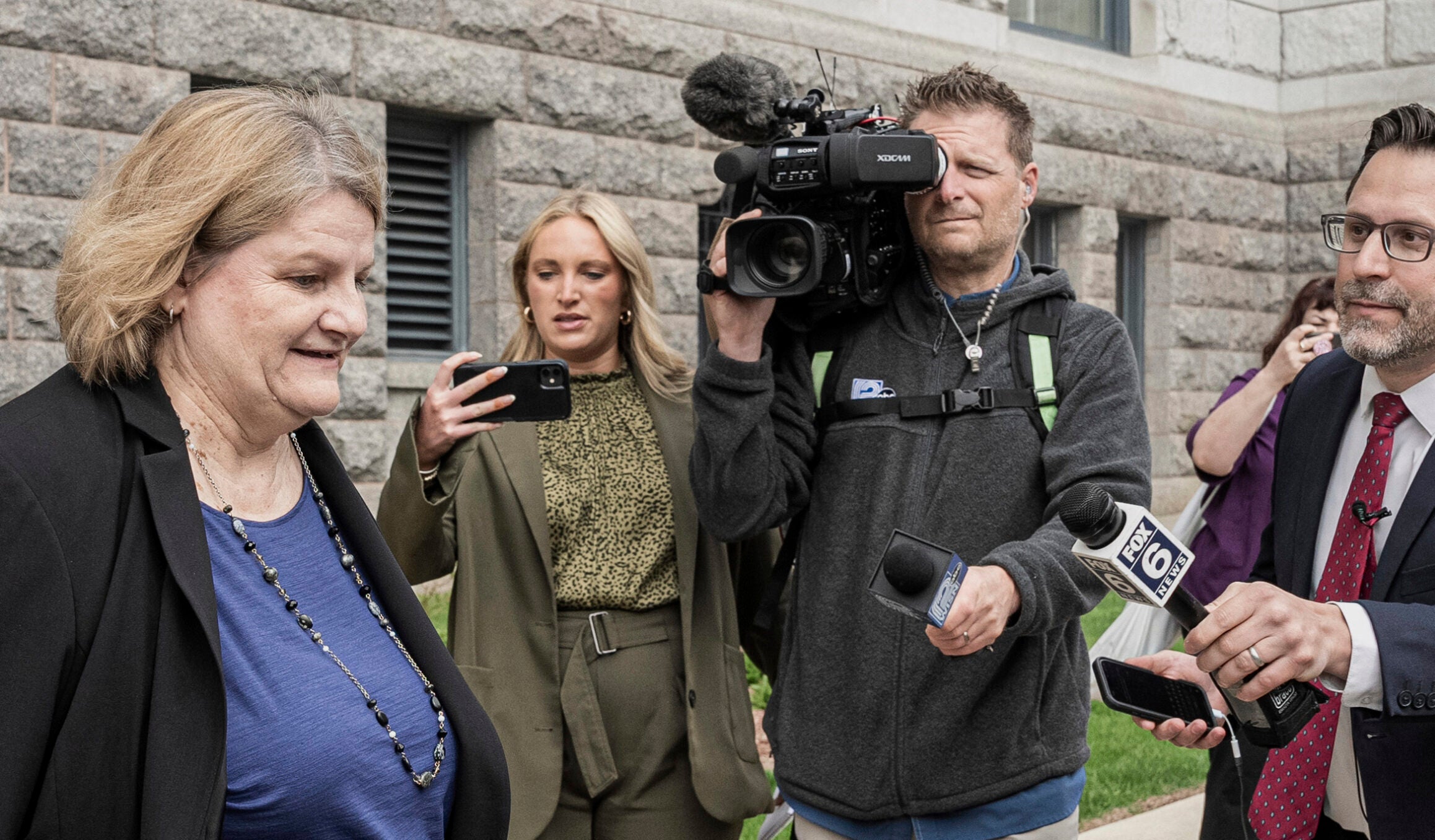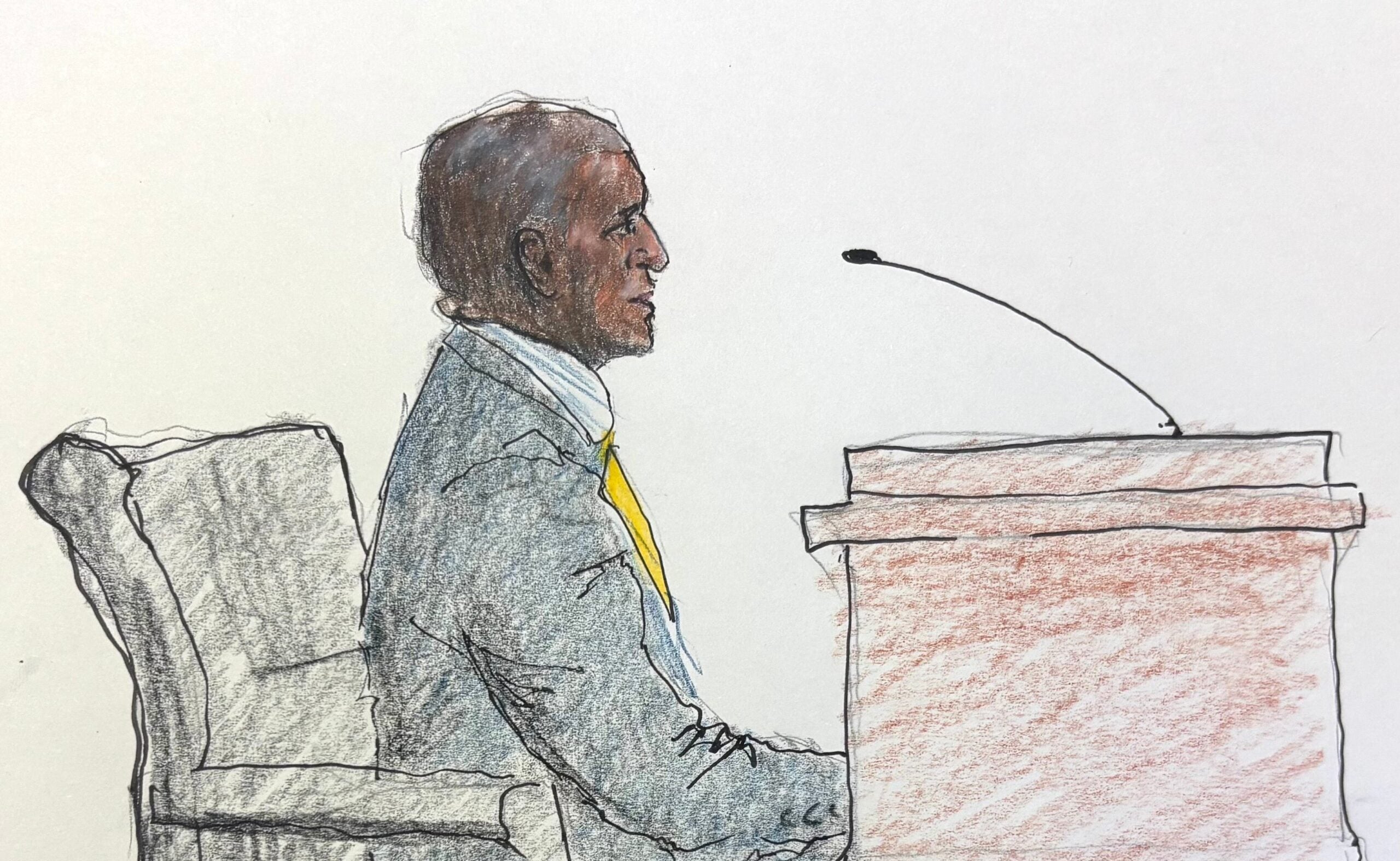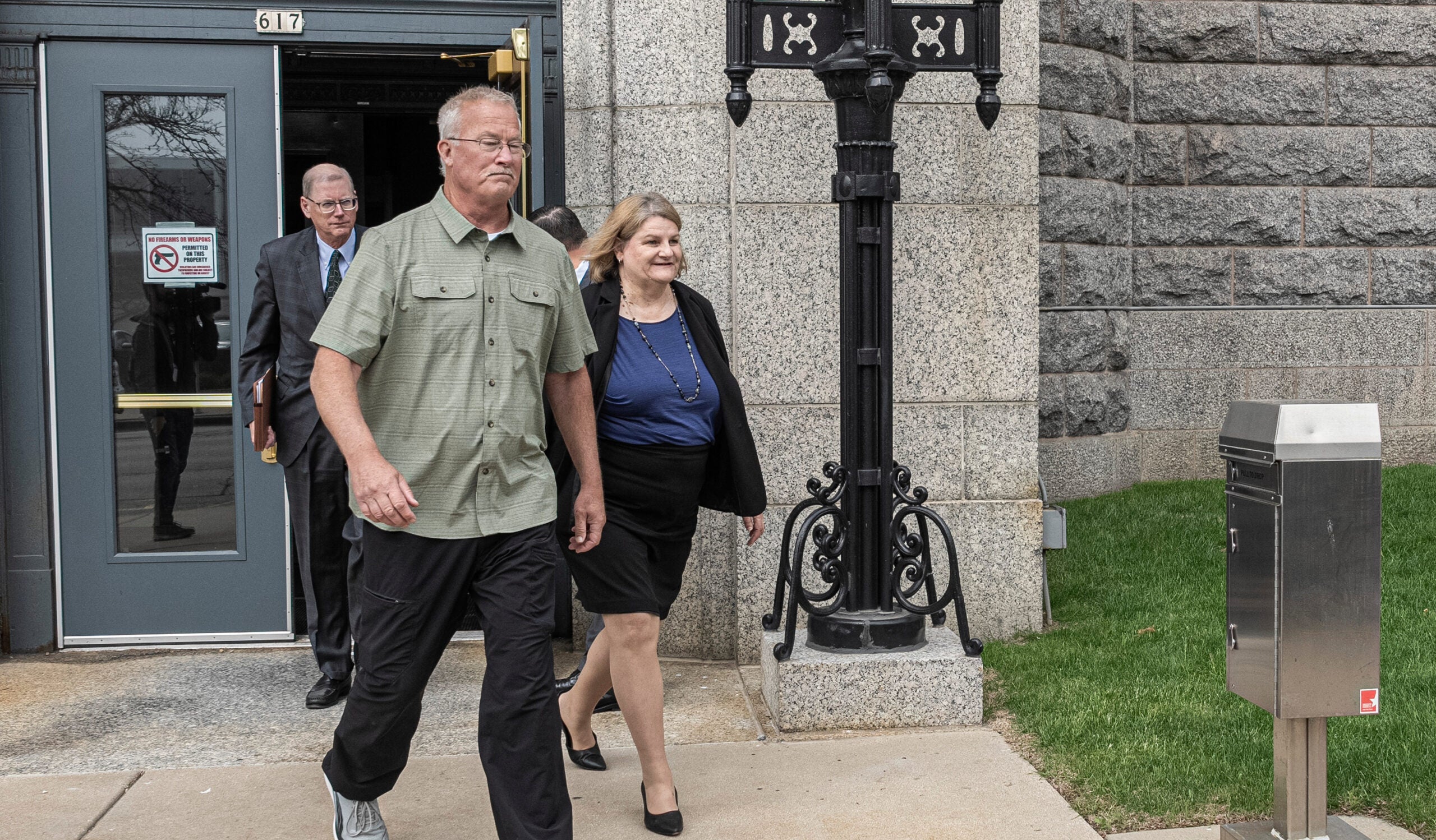Two cases argued before the state Supreme Court this week challenge the legal standards for granting new trials to defendants who appeal their convictions.
In both cases the Supreme Court heard, defendants asked the court to allow a jury and not the judge determine what evidence is relevant to the case.
One of the cases turns on whether a defendant can claim that side effects from a prescription drug taken as directed justifies pleading insanity in a murder trial. That’s what Doniyil Anderson did when he was charged with the fatal stabbing of his ex -girlfriend and the serious wounding of her new boyfriend in August 2008.
News with a little more humanity
WPR’s “Wisconsin Today” newsletter keeps you connected to the state you love without feeling overwhelmed. No paywall. No agenda. No corporate filter.
But, Anderson also admitted drinking a few beers that night. The judge in the trial told the jury that voluntarily mixing alcohol and drugs rules out an insanity plea. Anderson’s attorney, public defender William Schmaal, asked the court to let jurors decide what role the alcohol played in the murder.
“It just doesn’t make sense. It isn’t fair to say we’re going to disqualify your mental responsibility defense as a matter of law without the jury even considering it because of the small, causal contribution of alcohol,” Schmaal said.
In another case, the defendant Jimothy Jenkins, asked the court to grant a new trial so the jury can hear testimony from an eyewitness to the murder that he was convicted of. The judge in the case dismissed the request, ruling that the witness gave investigators several different versions of what she saw, and therefore wasn’t credible.
But Jenkins attorney Joseph Redding said the jury should decide what’s credible.
“We believe that what the circuit court did here is that it acted as the 13th juror. This jury never got to hear somebody who was at ground zero,” Redding said.
A ruling in both these cases is expected before the end of the year.
Wisconsin Public Radio, © Copyright 2025, Board of Regents of the University of Wisconsin System and Wisconsin Educational Communications Board.

